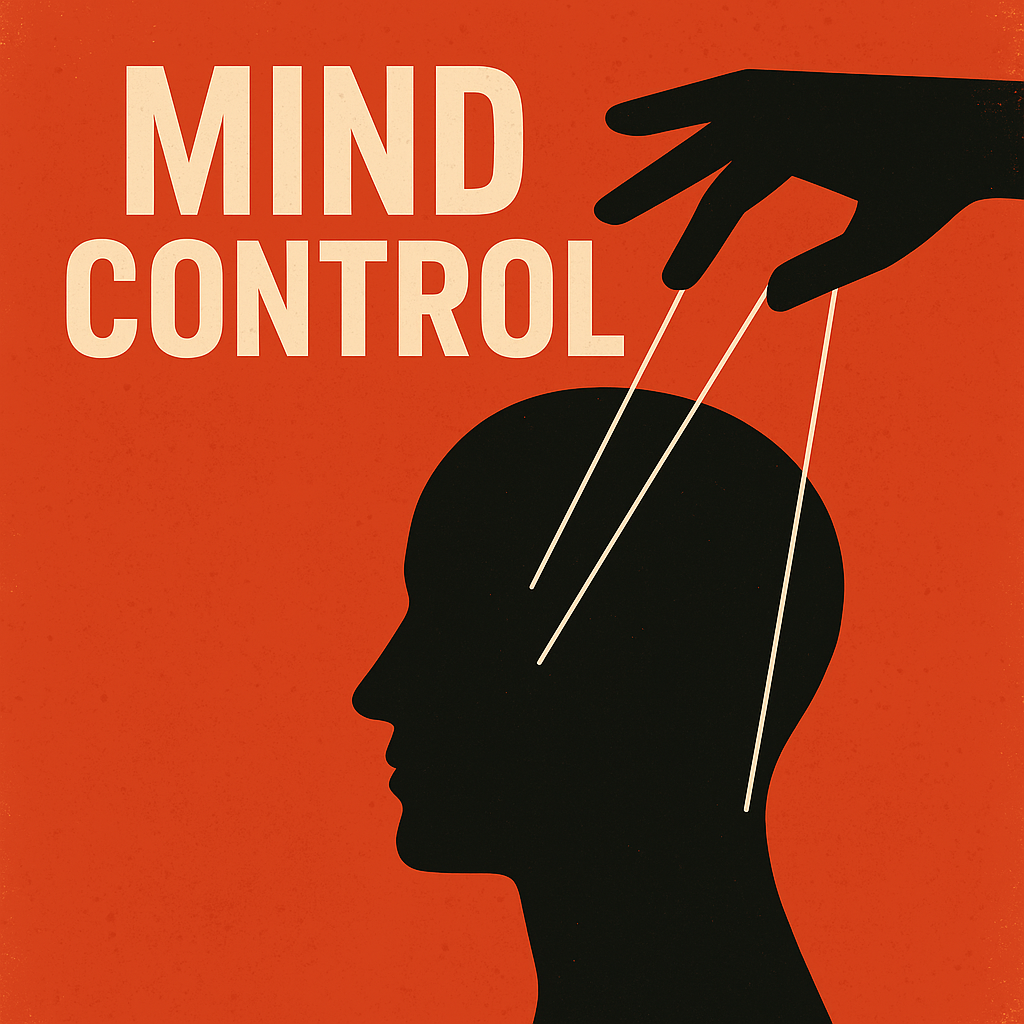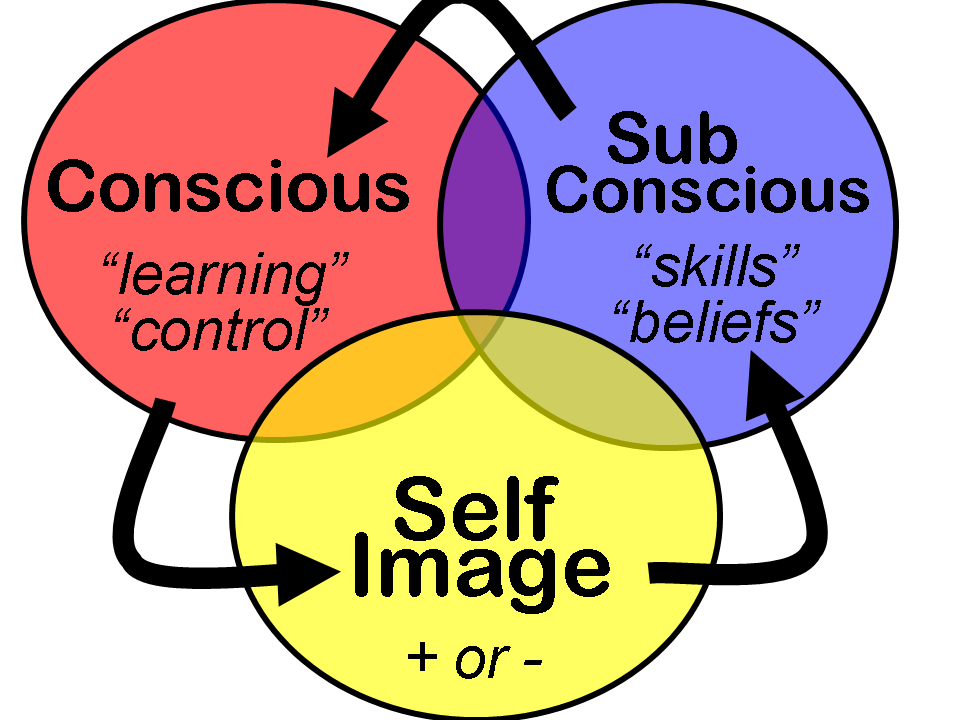for Fun and Profit
Controlling your mind isn’t about turning off your thoughts or trying to be some emotionless monk on a mountain.
It’s about direction.
It’s about choosing what you allow in, what you give energy to, and what you rehearse day after day—because all of those things quietly shape your beliefs, your behavior, and your outcomes.
When you learn to control your mind, the impact isn’t just personal—it’s strategic. It leads to greater focus, better results, less stress, and more joy. It’s fun. And yes, it can be wildly profitable.
Here’s how it works, one key principle at a time.
1. What You Focus On Increases

Your attention is a spotlight—and whatever you shine it on gets bigger.
If you focus on your limitations, they start to feel like walls.
If you focus on opportunities, they begin to multiply.
If you constantly think about what you don’t want to happen, your brain starts preparing for it as if it’s inevitable.
This isn’t just positive thinking—it’s how your brain is wired.
Your Reticular Activating System (RAS) filters incoming data and prioritizes what aligns with your dominant thoughts. It scans the world looking for reinforcement—proof that your focus is correct.
Think about that. If you’re focused on failure, your brain will notice all the reasons something won’t work. But if you shift your attention to progress, your mind will start looking for ways forward.
That’s why people who expect the best often seem “lucky.” Their focus filters out the noise and locks onto the next step. It’s not magic—it’s mental management.
So if you want to control your mind?
Start by asking: What am I focusing on right now?
Because that’s what you’re growing.
2. You Can Replace the Picture in Your Mind
Let’s go a layer deeper.

Your mind doesn’t think in long paragraphs. It thinks in pictures.
Say the words: “Don’t think of an elephant.”
Instantly, a big gray animal appears in your mind’s eye—because your brain grabs the subject, not the command. “Don’t” gets ignored.
Now say, “Imagine a blue monkey dancing on a basketball court.”
Boom. New picture.
This isn’t just fun—it’s functional.
If the image in your mind is fear, failure, or embarrassment, your body responds as if it’s happening. Your breath changes. Your muscles tighten. Your mood shifts.
But you can change the picture.
And when you do, you shift your state.
This is one of the most powerful tools in mental framing: learning to interrupt the automatic images that don’t serve you and intentionally replace them with ones that do.
Got a big presentation?
Instead of picturing disaster, visualize connection, impact, and calm confidence.
Worried about making a mistake?
Picture yourself learning quickly, adjusting, and winning the next round.
The goal isn’t to “never feel fear.” The goal is to not dwell on it. To move your mind from fear to focus. From problem to possibility.
And it starts by changing the picture.
3. You’ve Got to Know What You Want
You can’t aim at a target you haven’t defined.

Clarity doesn’t just feel good—it directs your mind. If you want your internal GPS (a.k.a. your RAS) to work for you, you have to program the destination.
What do you want to create?
What kind of person do you want to become?
What specific outcomes do you want in your career, your relationships, your health, your finances?
If you don’t decide, the world will decide for you. And that’s a dangerous gamble.
When you know what you want, your brain begins filtering the world differently. You’ll start noticing opportunities that were always there—but previously hidden in plain sight. You’ll begin meeting people who align with your goals, because your energy has shifted and your focus is clear.
Write it down. Speak it aloud. Picture it often.
The clearer the image of what you want, the more your brain goes to work on your behalf—connecting the dots and opening doors you didn’t even know existed.
4. Create the Vision of Your Future Self
This is where belief becomes behavior.

Once you’ve decided what you want, you need to start rehearsing it mentally. Why? Because your brain doesn’t fully distinguish between vividly imagined experiences and real ones.
That’s why elite athletes visualize the perfect performance before they compete. That’s why top performers in business rehearse a pitch before walking into the room.
Your mind becomes familiar with what you repeat.
And familiarity breeds confidence.
So imagine the version of you who has already achieved what you’re after. The confident you. The calm you. The clear and courageous you.
- How do they handle conflict?
- What do they do in the morning?
- How do they speak?
- How do they recover from setbacks?
The more you mentally rehearse that version, the more your actions start to align with it. You become it—one thought, one decision, one day at a time.
You’re not pretending. You’re training.
5. Repetition Is Power
Repetition wires the brain.
It’s how habits are formed. It’s how beliefs are reinforced. It’s how fears become phobias—and how champions build confidence.
If you’ve rehearsed a failure story for years, no wonder it feels real. But the exciting truth? You can write a new story. You can use the same power of repetition to build a mindset that lifts you.
Repeat your goals. Repeat your affirmations. Repeat your visualizations.
But also—repeat the actions that move you forward.
Even small wins, repeated often, begin to change your identity. You go from “someone who hopes” to “someone who does.”
You stop waiting for confidence and start building it, brick by brick.
Repetition makes it real.
And what you repeat, you become.
6. Mind Framing Is a Skill You Can Train
You are constantly framing your experiences—consciously or not.
When something goes wrong, do you see it as proof that you’re failing? Or as data for improvement?
When someone criticizes you, do you crumble—or do you see an opportunity to strengthen your resilience?
Framing is the story you tell yourself about what’s happening.
And stories shape reality.
The good news? You can practice new frames. You can train yourself to interpret challenges as fuel, not fire. To see delays as preparation, not punishment. To respond with curiosity instead of judgment.
This is the ultimate skill—because it gives you your power back. No one controls your interpretation but you.
Train your framing like a muscle.
Start small. Catch yourself mid-thought. Pivot. Practice.
Soon, your reflex will shift from “panic” to “possibility.”
And that’s when your mind becomes a true asset—not a liability.
Why Fun and Profit?
Because that’s what happens when the control of your mind becomes your ally instead of your enemy.
Fun comes from flow. From confidence. From knowing you can trust yourself under pressure. From not being derailed by every negative thought that pops up.
Profit—whether financial, emotional, or relational—comes from clarity and execution. You stop wasting energy on overthinking. You make faster decisions. You recover quicker. You show up better. You lead with purpose.
Controlling your mind is not about perfection—it’s about direction.
And when you point your thoughts toward what matters most?
You win more. Smile more. And yes… profit more.
One Last Thought:
It’s time to Reclaim the Wheel
Every day, your mind is being programmed.
By your thoughts.
By your habits.
By the people and media you surround yourself with.
The question is: Who’s doing the programming?
Is it you… or someone else?
If you don’t like the way your life looks, don’t start by changing the outside. Start with the pictures in your head. The stories you tell yourself. The focus you choose. The frame you give to each moment.
Control your mind—and you control your future.
Take the wheel and steer your life.
What’s your next step? How about a free downloadable worksheet with a 7 step process that leads you through changing the way you think and taking control of your mind? Download the PDF created by Coach Wheeler: Mind Control 101 worksheet — A simple, powerful tool to help you reprogram your thoughts and rewire your focus.
Why?
Because your mind is the operating system of your life. You need to control your mind.
And the upgrade?
That starts today.



